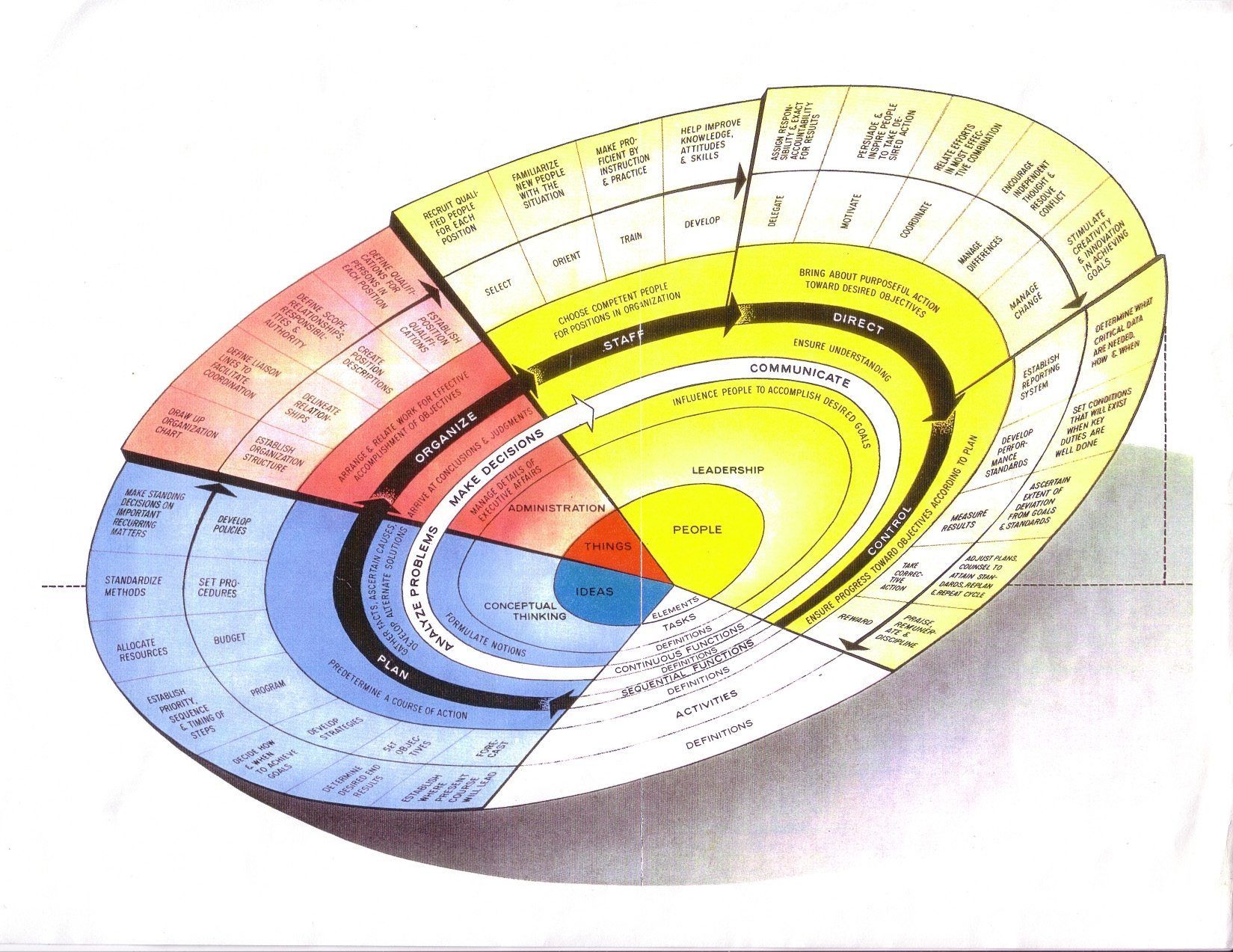Close analysis of the PMBOK® (version 5) suggests that all skills required for effective project management are also required for program management.
The differences between project management and program management reflect the prioritization and relative importance of skills to each role.
At a high level, both project management and program management require:
- Conceptual skills
- Design skills
- Human skills
- Technical skills
However, there are clear differences between the day-shift manager at a fast-food restaurant and a program manager running a multi-billion, multi-cultural, multi-year project. Both require the skills listed above, but differences lie in their relative importance, or prioritization. If comparing the three roles on a simple basis, you might agree to the following levels of importance, where a solid Powerball is High and an empty Powerball is Low:
While your environment may be ‘unique’ and therefore not like the above, there must remain differences. Most noteworthy on the aggregate, ‘human’ skills are the most important, followed by technical skills. Since human skills rely hugely on communication skills, and effective communication relies largely on ‘listening’ skills, then arguably facilitation remains one of the most important skills for project management and program management, since the core skill of facilitation is “active listening.”
Program Management in 3-D
Expand the logic further by using Mackenzie’s “The Management Process in 3-D” as a guidepost. Here we see (from an area perspective) that “People” represent one-half of the pie. People require ‘leadership’ skills depending on the function of ‘communications’ to ensure understanding and bring about purposeful action.

Program Management: Mackenzie’s Management Process in 3-D © 1969 by the President and Fellows of Harvard College
Therefore, we would argue that facilitation skills are more important for project managers than program managers. With a project manager, there may be more than one right answer. For most program management, conditions and assumptions drive optimal solutions. Both manager types need to be skilled, but the relative importance of those skills varies across management types.
______
Don’t ruin your career by hosting bad meetings. Sign up for a workshop or send this to someone who should. MGRUSH workshops focus on meeting design and practice. Each person practices tools, methods, and activities every day during the week. Therefore, while some call this immersion, we call it the road to building high-value facilitation skills.
Our workshops also provide a superb way to earn up to 40 SEUs from the Scrum Alliance, 40 CDUs from IIBA, 40 Continuous Learning Points (CLPs) based on Federal Acquisition Certification Continuous Professional Learning Requirements using Training and Education activities, 40 Professional Development Units (PDUs) from SAVE International, as well as 4.0 CEUs for other professions. (See workshop and Reference Manual descriptions for details.)
Want a free 10-minute break timer? Sign up for our once-monthly newsletter HERE and receive a timer along with four other of our favorite facilitation tools, free.

Terrence Metz, president of MG RUSH Facilitation Training, was just 22-years-old and working as a Sales Engineer at Honeywell when he recognized a widespread problem—most meetings were ineffective and poorly led, wasting both time and company resources. However, he also observed meetings that worked. What set them apart? A well-prepared leader who structured the session to ensure participants contributed meaningfully and achieved clear outcomes.
Throughout his career, Metz, who earned an MBA from Kellogg (Northwestern University) experienced and also trained in various facilitation techniques. In 2004, he purchased MG RUSH where he shifted his focus toward improving established meeting designs and building a curriculum that would teach others how to lead, facilitate, and structure meetings that drive results. His expertise in training world-class facilitators led to the 2020 publication of Meetings That Get Results: A Guide to Building Better Meetings, a comprehensive resource on effectively building consensus.
Grounded in the principle that “nobody is smarter than everybody,” the book details the why, what, and how of building consensus when making decisions, planning, and solving problems. Along with a Participant’s Guide and supplemental workshops, it supports learning from foundational awareness to professional certification.
Metz’s first book, Change or Die: A Business Process Improvement Manual, tackled the challenges of process optimization. His upcoming book, Catalyst: Facilitating Innovation, focuses on meetings and workshops that don’t simply end when time runs out but conclude with actionable next steps and clear assignments—ensuring progress beyond discussions and ideas.




